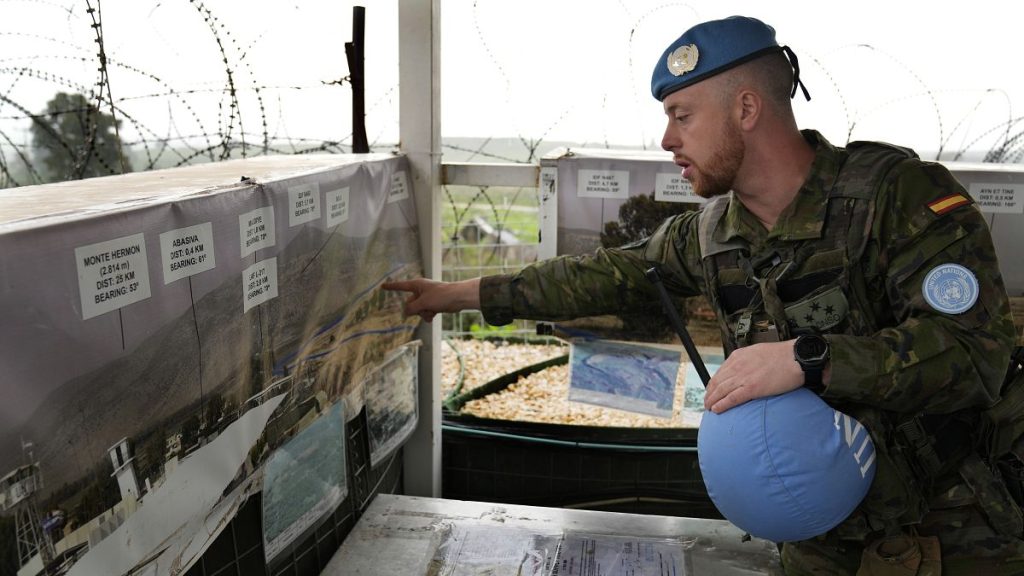The United Nations peacekeepers in southern Lebanon are currently maintaining their positions despite warnings from the Israeli military for them to move away. G7 defence ministers have expressed concern for the safety and security of the UN peacekeepers following a series of attacks by the Israeli military. In a joint statement issued after their meeting in Naples, the G7 ministers emphasized the importance of protecting peacekeepers and called for a full cessation of hostilities in line with UNSCR 1701. The UNIFIL mission, comprised of 10,000 peacekeepers from 50 nationalities, patrols the Blue Line border between Lebanon and Israel, working to de-escalate tensions between the two sides. The EU foreign policy chief suggested that UNIFIL could be more effective, but decisions on its future lie with the UN Security Council.
Despite warnings from the Israeli Defense Forces, UNIFIL has maintained its positions in southern Lebanon with a unanimous decision from its troop-contributing countries and the Security Council. The IDF has targeted UNIFIL positions, endangering peacekeepers, while Hezbollah has launched rockets from near those positions, also putting peacekeepers at risk. Earlier in the month, an Israeli tank fired on UNIFIL headquarters in Naqoura, injuring two peacekeepers. The deteriorating security situation has forced UNIFIL to suspend most patrols near the Blue Line, with Israel accusing them of failing to halt Hezbollah’s military activities and allowing military infrastructure near their bases.
The joint statement from G7 defence ministers also highlighted their unity amid escalating conflicts in the Middle East and Russia’s war in Ukraine. They expressed determination to address security challenges and provide military assistance to Ukraine in the short and long term. The ministers condemned Iran’s ballistic missiles and large-scale attacks against Israel, emphasizing the importance of upholding international law. The G7 also discussed security issues in Africa and developments in the Asia-Pacific region during their meeting in Naples. Italy currently holds the rotating chairmanship of the G7, which includes the US, Canada, Japan, the UK, Germany, and France.
The G7 ministers are focused on maintaining security and stability in the face of global conflicts and instability. They reaffirmed their commitment to address security challenges during a time marked by great instability in history. The joint declaration also signifies their intent to provide assistance to Ukraine, including military aid, while condemning Iran’s actions in the Middle East. The ministers highlighted the importance of upholding international law and acting within its boundaries in response to security threats. The G7 also discussed security issues in Africa and the Asia-Pacific region, emphasizing the need for cooperation and unity in addressing these challenges.
The G7 ministers emphasized the importance of providing assistance to Ukraine, including military aid, in both the short and long term. They condemned Iran’s ballistic missiles and large-scale attacks on Israel as violations of international law. The ministers highlighted their unity in addressing security challenges amid global conflicts, including Russia’s war in Ukraine and escalating tensions in the Middle East. Italy, holding the rotating chairmanship of the G7, played a key role in leading discussions on security issues in Africa and the Asia-Pacific region. The G7 reaffirmed their commitment to upholding international law and working together to address security threats.


